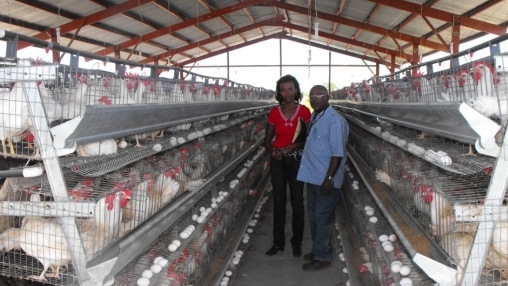Challenges
In 2008, living conditions in disadvantaged urban areas in Haiti were among the worst in the Americas. As more people moved from rural to urban areas, the strong social cohesion that characterized the countryside was affected, weakening the deterrence for young migrants to engage in crime and violence.
The disadvantaged urban areas continue to face key challenges in Haiti today: high demographic pressure, poor metropolitan areas, and lack of access to basic infrastructure and services, such as health and education. Amid high unemployment and acute poverty, malnutrition is prevalent. Insufficient access to safe water and sanitation as well as a lack of solid waste collection threaten human health and the environment, particularly in the context of a cholera epidemic.
In addition, due to lack of planning and technical capacity as well as clear legal and regulatory framework, local government involvement in disadvantaged urban areas is particularly uneven and suffers from lack of coherence and supervision of the multiple municipal development initiatives.
Solution
In this context, with $15.7 million from IDA, the Urban Community Driven Development Project (PRODEPUR) brings a development approach whereby communities and their institutions are empowered with decision-making authority and control of financial resources for investments affecting their communities, which has proven successful in other parts of Haiti under the Community Driven Development Project (PRODEP).
Subprojects selected and implemented by the communities address gaps in service delivery and lack of infrastructure by improving access to electricity and water, rehabilitating roads, and improving marketplaces and livelihoods. For example, a chicken hatchery of over 6000 chickens was set up to provide a sustainable food supply that would provide employment and keep costs down for the residents of Cité-Soleil and Bel-Air, two of the most vulnerable and often violent neighborhoods of Port-au-Prince.
Over 100 solar street lamps are now providing electricity to 120,000 people, children are able to study at night, businesses are able to stay open, and women are able to move about the neighborhood more safely.
PRODEPUR also helps promote social cohesion in an environment of high urban migration by fostering collective action, communal responsibility, encouraging participation of women and promoting access to information and transparent decision-making. In addition, the project builds capacity among existing, effective community-based organizations, which contributes to reducing crime, violence, including among gangs, while at the same time reinforcing confidence in local solutions and governance.
Results
With more than 400 subprojects completed, PRODEPUR contributed to improving the living conditions of over 270,000 people by:
- Providing access to water for over 38,000 people
- Giving access to electricity through solar street lamps to nearly 120,000 people
- Improving the neighborhoods through the construction of public places, rehabilitation and concreting of roads, streets, alleys and corridors (8.12 km) allowing people to connect to health centers, schools, markets, and other services in neighboring communities
- Improving water and sanitation through the construction of latrines benefiting approximately 7,000 people, building and rehabilitating 10km of drainage canals, and providing water treatment or distribution points for 130,000 people
- Improving access to education through the construction and rehabilitation of seven schools and 20 community classrooms, the payment of school fees for students of poor families, and provision of books for 3,850 boys and girls
- Creating over 100 income generating initiatives including: a community shop ; a chicken and egg operation in Cite Soleil; a catering and patisserie center; a water treatment station, a fruit processing workshop and other activities to provide job-skills training for women and promote entrepreneurship
Bank Group Contribution
The Bank contributed USD 15.70 million through an IDA grant.
Moving forward
In the context of a fragile state with weak capacity, the Bank, with the Government of Haiti and other key partners will conduct an evaluation of the CDD experience and an analysis on how to improve infrastructure and service delivery at the municipal level.
Beneficiaries
The project resulted in improving access to basic and social infrastructure and services while providing access to income generating opportunities for over 270,000 residents living in disadvantaged urban areas of Cite Soleil, Bel Air, Delmas in Port-au-Prince, and other neighborhoods in Cap Haitien, St Marc and Gonaives (total of 21 urban areas).

